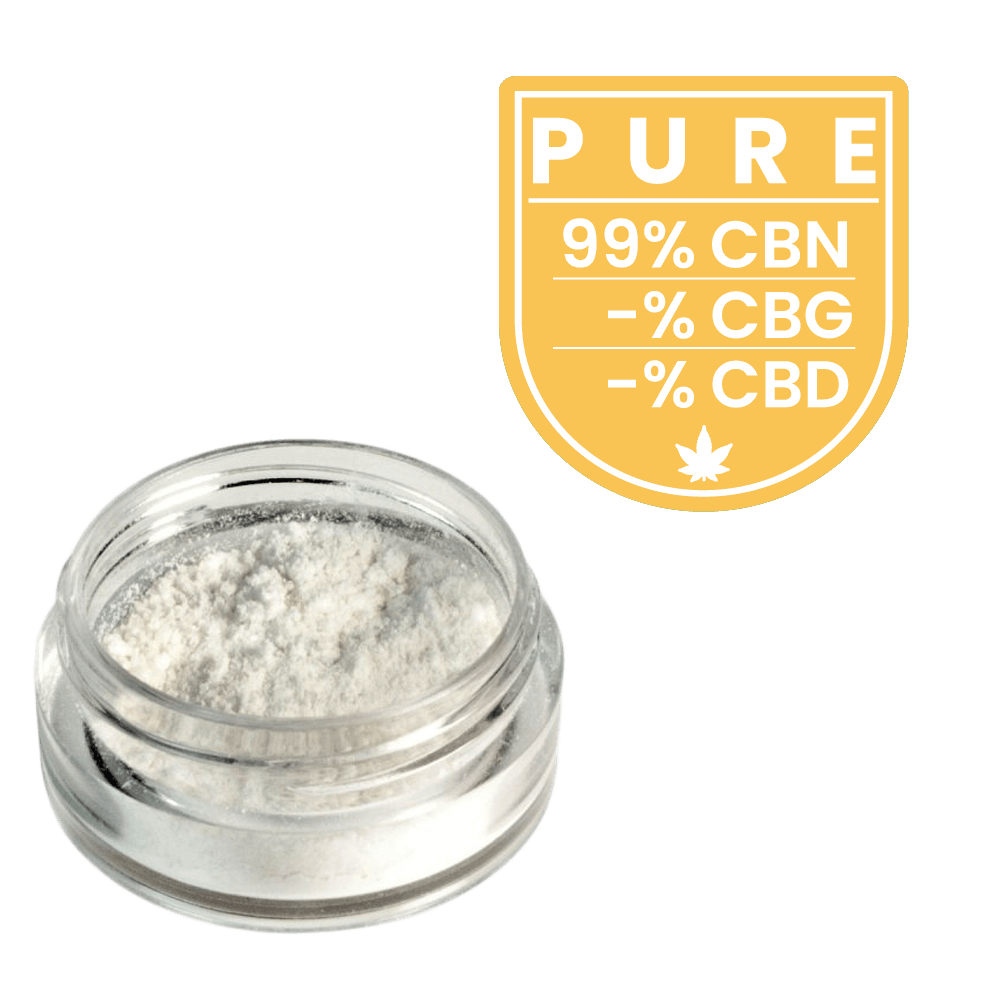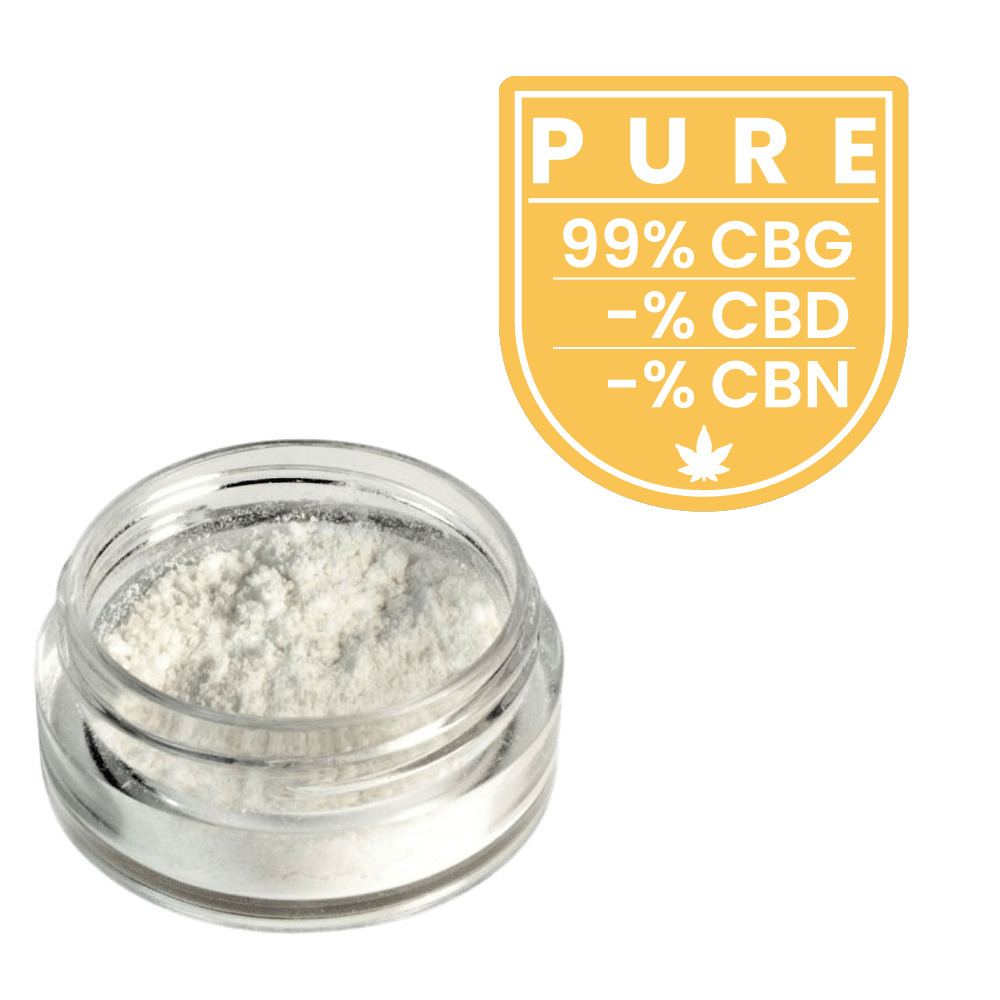Pure 99% CBN Crystals (1gr)
€ 28,50
Quantity CBN: 99,8% (±1000mg total)
Content: 1 gram
Type extract: Isolated CBN crystals
Meaning: No other cannabinoids and terpenes present
Benefits: Purest CBN product for different uses
Makes you feel: Relaxed and drowsy
Color: White
Packaging: Small plastic jar
Taste: None
Suitable for: Vaping, edibles, tinctures, etc
What is CBN (Cannabinol)?
Cannabinol (CBN), like CBD (cannabidiol), is one of more than 100 cannabinoids derived from the cannabis plant. Although it’s not as popular as CBD, it also has very intriguing properties.
It’s a compound that, like CBD, has no psychotropic effects. In other words, it doesn’t alter your perception nor is it intoxicating like cannabis. Unlike THC, however, it isn’t generated directly by the cannabis plant, but is produced passively when THC is degraded by light or heat.
This means that in nature, this cannabinoid is generated when THC ages, or is oxidised by the effect of heat and light.
Effects of CBN
As CBN is a compound derived from THC, many people wonder whether this cannabinoid can have psychotropic effects, as THC does. However, this cannabinoid is completely free of them and has very intriguing properties.
Like most cannabinoids, CBN works by binding to cannabinoid receptors in the mammalian body. These receptors make up the endocannabinoid system or ECS.
The ECS acts on multiple physiological processes, regulating many metabolic functions. It influences appetite, sleep, mood, and the immune system, among other things.
Like the substance it is derived from, THC, CBN is a cannabinoid that shows a higher binding affinity for the CB1 receptor. It also has less binding to the CB2 receptor than THC. Lastly, it’s also worth mentioning that CBN also affects the TRPV2 receptor.
Preliminary studies show that CBN may help regulate important physiological processes such as sleep and appetite.
Potential benefits of CBN
Most of the existing data on this cannabinoid come from pre-clinical experiments. This means that many of these benefits have not yet been tested in humans. Even so, they show very promising properties that this compound has.
As explained above, the ECS influences the appetite regulation process, and it has been found that certain cannabinoids can stimulate appetite. CBN could be one of them, because, according to a study conducted on laboratory rats in 2012, this cannabinoid increased the appetite of mice and the amount of food they ate in mice that were given it.
Another study published in 2006 suggests that CBN and other cannabinoids may contribute positively to the treatment of psoriasis in humans. Therefore, this compound also has cosmetic properties that could help regulate certain skin processes.
It also has antibacterial properties, according to research carried out in 2008.
Lastly, its potential for neuroprotection is worth noting, as a study published in 2005 showed that this cannabinoid slowed the progression of amyotrophic lateral sclerosis in an experiment with laboratory mice.
Potential uses of CBN
On this basis, CBN could be useful in both cosmetics and medicine, but more studies are needed to confirm this.
CBN can be used in a number of ways, including:
CBN Oil: CBN oil can be taken orally, sublingually, in capsules, or applied topically.
CBN flowers and CBN resin: some users smoke or vape them.
Vaping using vape devices or e-liquids: CBN can also be vaped using specific devices and liquids containing CBN.









Reviews
There are no reviews yet.